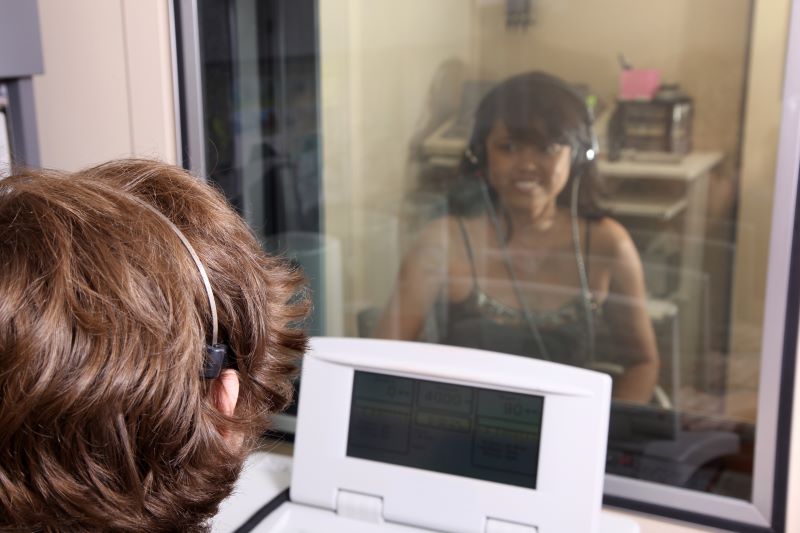We tend to not think twice about regular dental health checkups. Same goes for getting your vision tested. But what about your hearing? Why is this crucial sense so often overlooked when it comes to having a clear understanding of your health?
The Beltone Tristate team is here to remove the mystery, help you better understand the testing process, and keep your hearing healthy!
So you’re considering getting your hearing tested. That’s great! We recommend that anyone over the age of 50 get their hearing tested on an annual basis so that they’re fully informed about the state of their hearing health. Why is this so important? Well, hearing loss is a natural occurrence with age. It’s also a painless and gradual process, meaning that your hearing loss can sometimes be difficult to detect because your brain and body will do its best to adjust to its effects.
You might find yourself sitting in certain spots when going out to restaurants, increasing your TV or stereo’s volume, or doing other subtle actions to compensate for your loss without even realizing it! These annual tests will help create a story that will inform you, your loved ones, and your hearing health professional about the state of your hearing health — and what can be done to support your good hearing while preventing additional loss!
But it all starts with actually booking that appointment. So what can you expect? Well, let us tell you!
What to expect from your Beltone Tristate hearing test
Step One: The Personalized Assessment
This isn’t what we would describe as a clinical part of our process but it’s an absolutely crucial part of understanding your situation. In short, we want to understand you, your experience with what you think might be hearing loss, how it’s affecting your life, and how you want to live your life.
This interview, which, if possible, should be conducted with a loved one present so we can have an objective and subjective view of your experience, will feature a series of questions designed to help us uncover the symptoms you’re experiencing and will help us better move in the right direction when it comes to testing and designing a better hearing health plan that is best fit for you.
Your lifestyle, your better hearing goals, your budget — we’ll cover all of it in an effort to help you feel comfortable, informed, and empowered.
Step Two: The Video Ear Exam
Once we’ve had the opportunity to get to know you, understand your situation, and answer any questions you have about your hearing health (remember, this appointment is all about you and your experience, so don’t hold back!), we’ll conduct a quick, painless, and non-invasive test with a tool called a video otoscope.
A video otoscope is designed to let us see into your ear canal, in fact, we’ll be able to get a good look at your eardrum. The images captured by the video otoscope are then visible on a monitor where we can better assess the health of your ear. Are there obstructions, such as earwax, that might be affecting your hearing? Are we able to see indications of an ear infection? The video otoscope will show us all this and more.
Step Three: The Audiometric Test
After we’ve used the video otoscope to take a look inside your ear, our next step in better understanding the state of your hearing is what is called an audiometric test. This test will help us identify the type and degree, if any, of hearing loss you are experiencing.
Because there are different types of hearing loss, we will use different assessments across a range of sounds and techniques, including word discrimination testing, tone and speech testing, and air and bone conduction testing. These assessments will help produce what is called an audiogram, and will take us into the next phase of the hearing testing process — your results!
Step Four: Review Your Results
Your audiogram is essentially a graphical representation of your hearing, and will show us the state of your hearing against what is considered “normal hearing”. This will help us understand whether you have a hearing impairment, and if you do, if that hearing loss is mild, moderate, or severe in nature.
Of course, we’ll explain all of this to you in a language that you can understand and answer any questions you may have, so that we can confidently move forward with providing you recommendations related to hearing technology, accessories, and any other treatments that pertain to your specific hearing health.
Our goal is to ensure you’re informed and have the recommendations you deserve to live your best hearing life — and to provide you with the service and support you need to achieve it!
Your hearing means so much.
Don’t you deserve the best care possible?
Call Beltone Tristate today for your FREE hearing test!

